Normal Governance and Civics Worksheets for Ages 3-9 - Page 2
41 filtered results
-
From - To
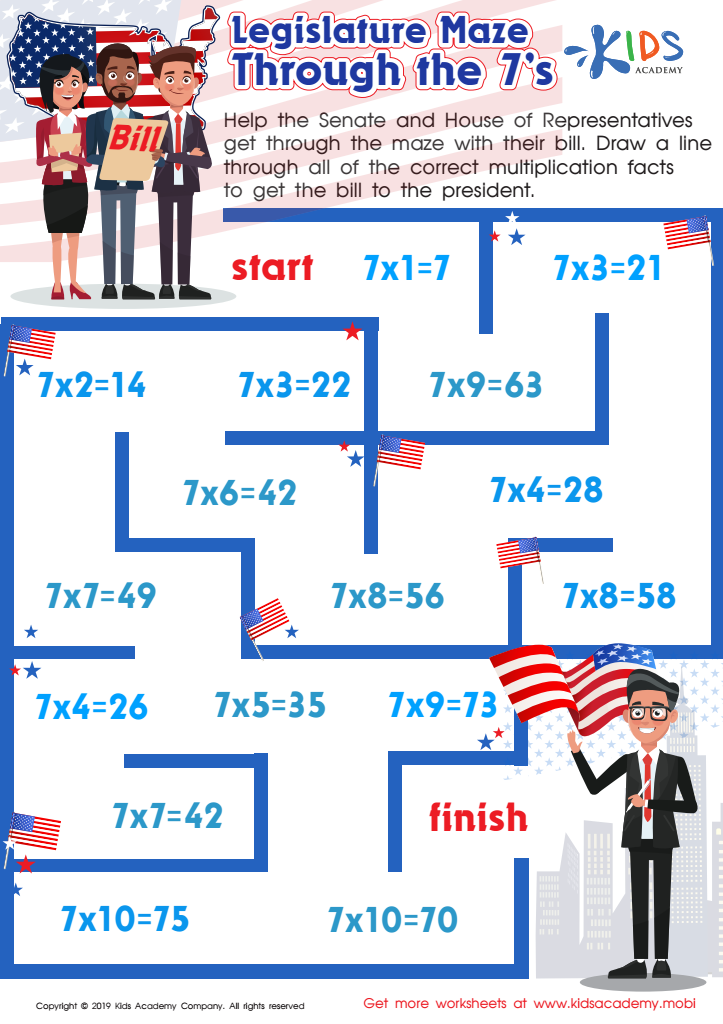

Legislature Maze Through the 7’s Worksheet
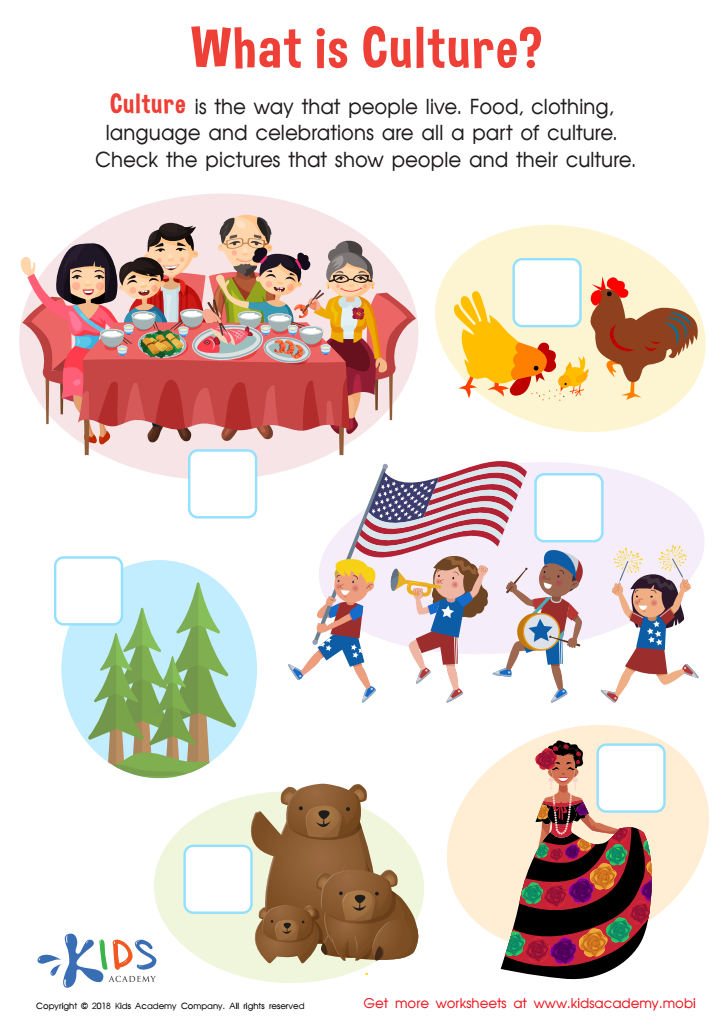

What Is Culture? Worksheet
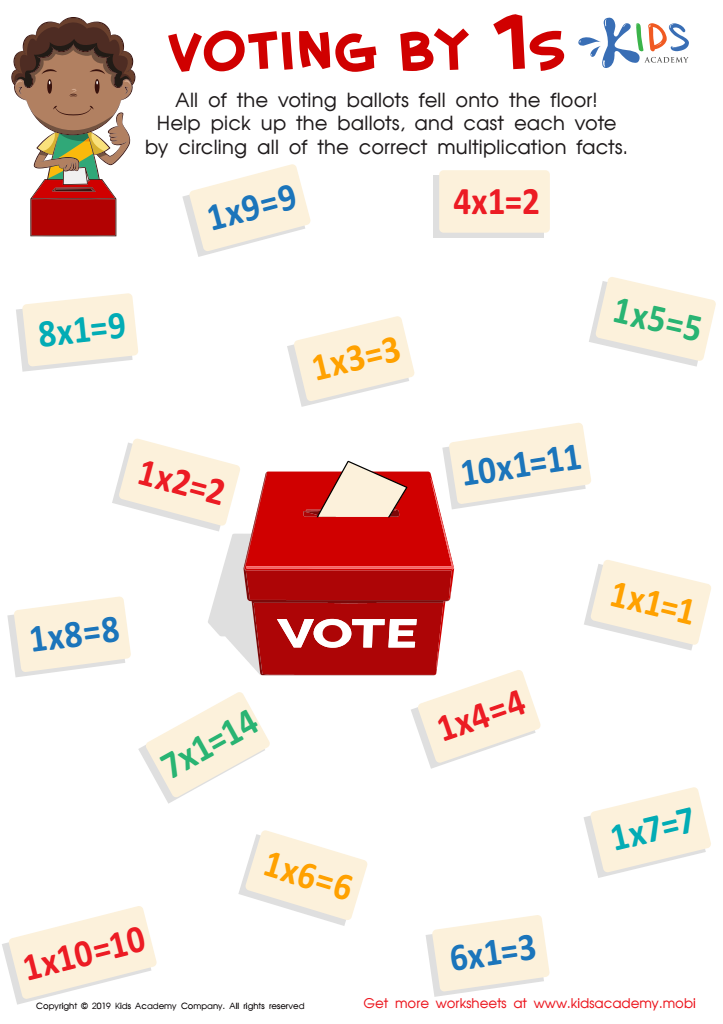

Voting by 1s Worksheet
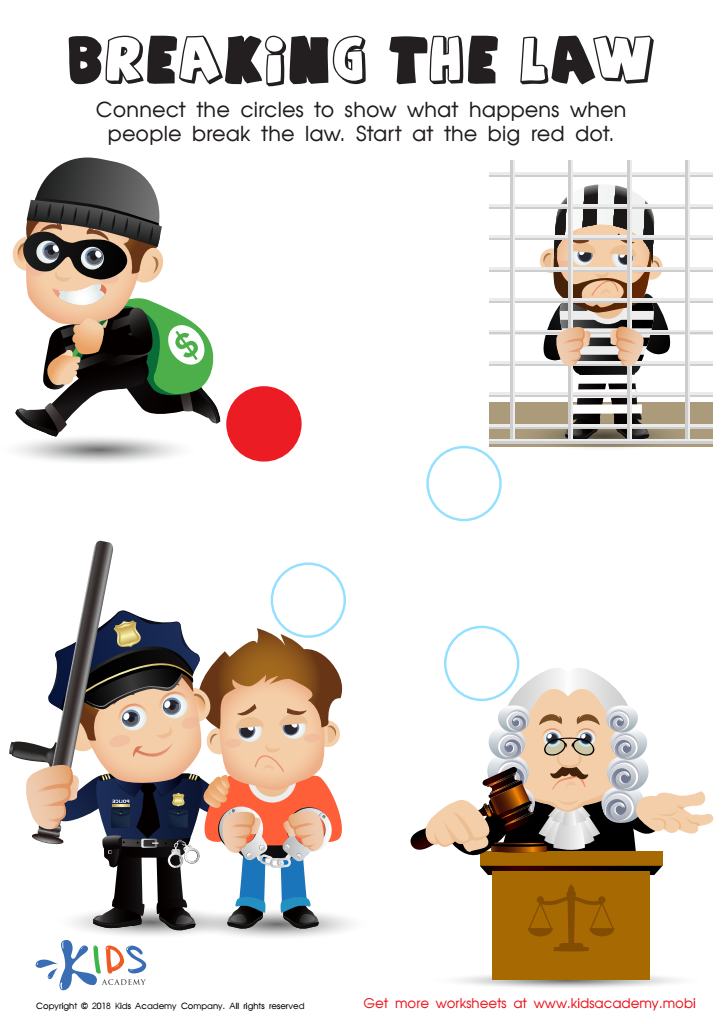

Breaking the Law Worksheet


Election Day Worksheet
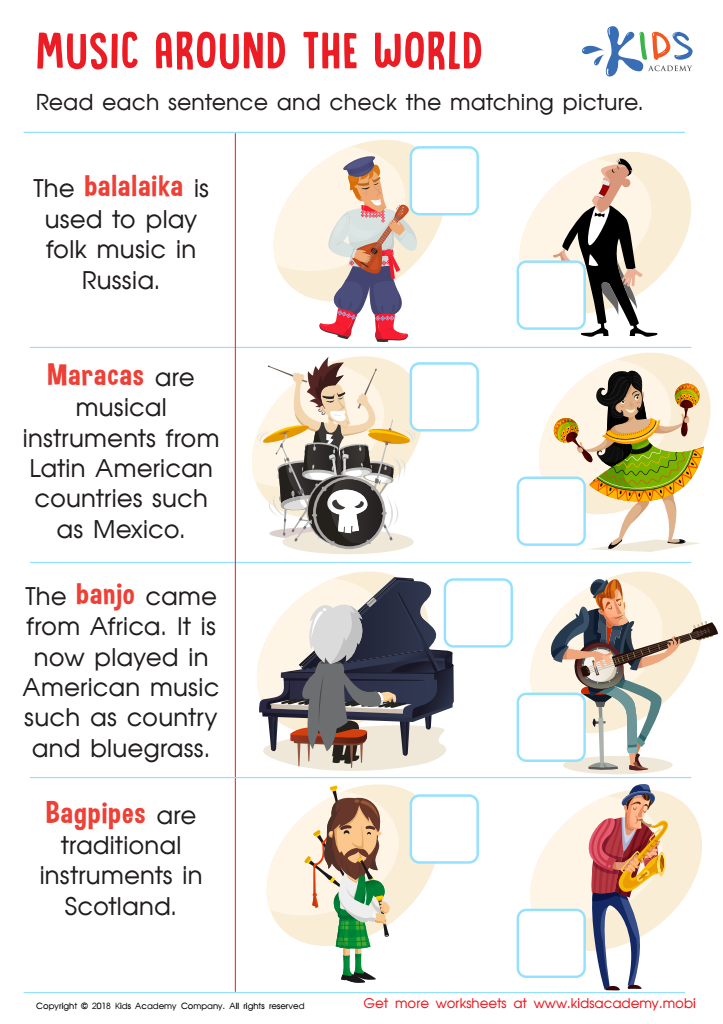

Music Around the World Worksheet


Chinese Word Tracing: Ni Hao Worksheet


Declaration of Independence Word Search Printable
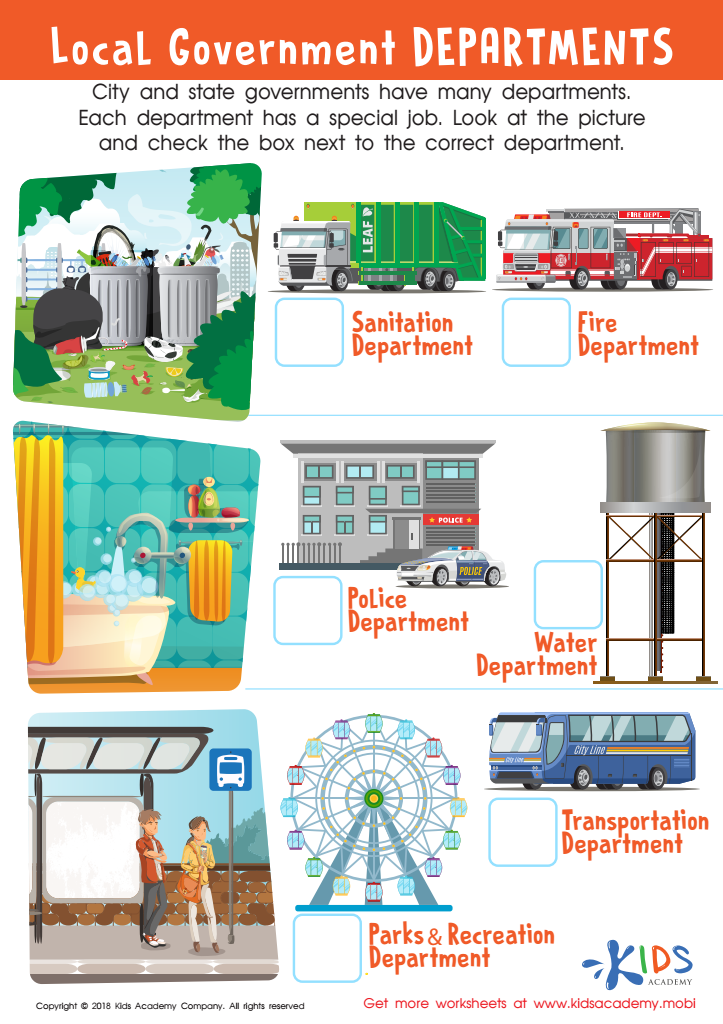

Local Government Departments Worksheet
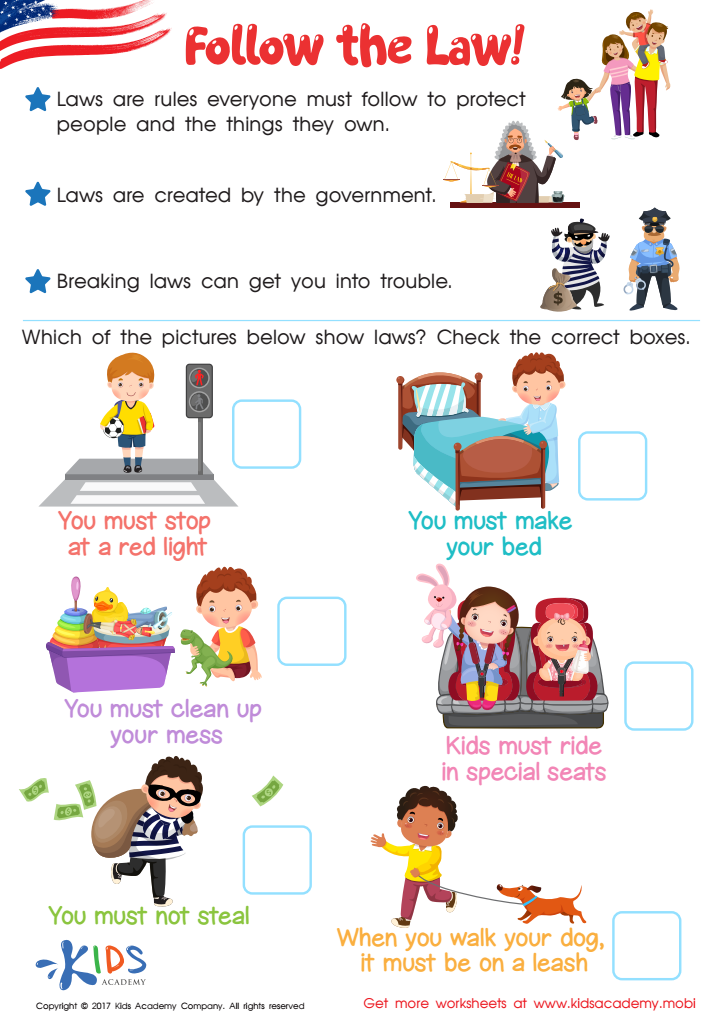

Follow the Law Worksheet
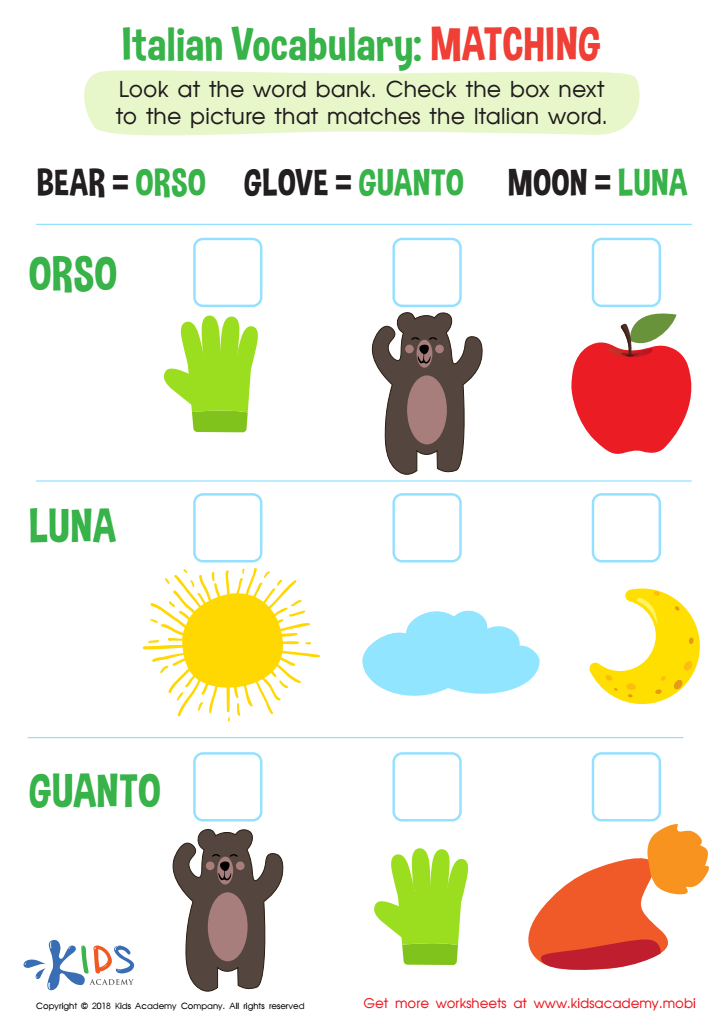

Italian Vocabulary Matching Worksheet
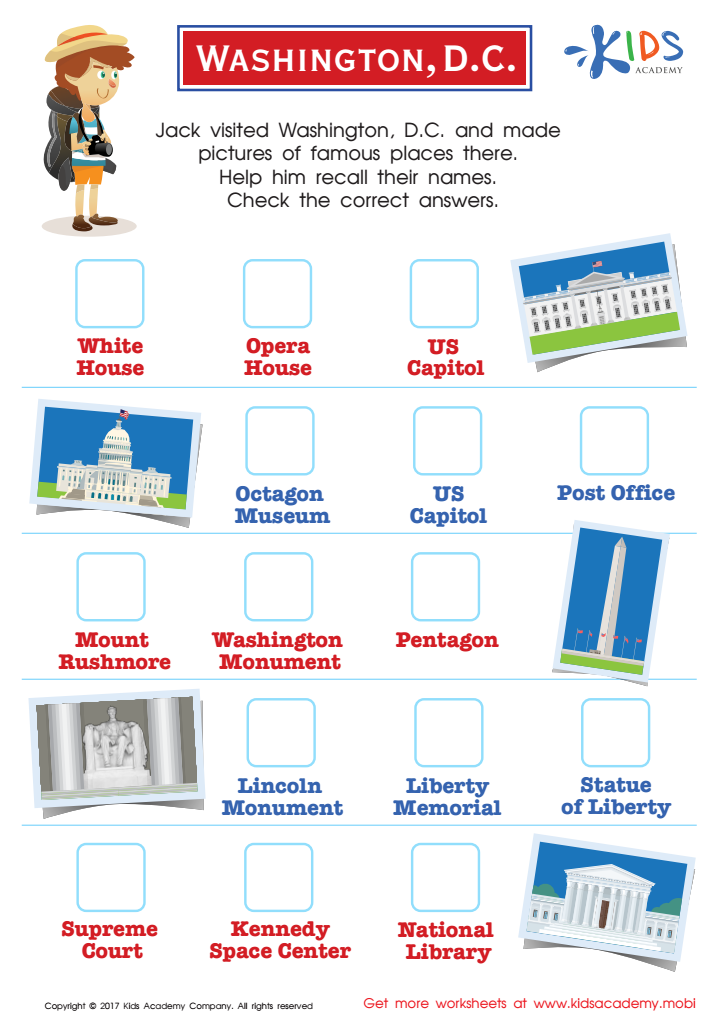

Washington D.C. Printable Worksheet
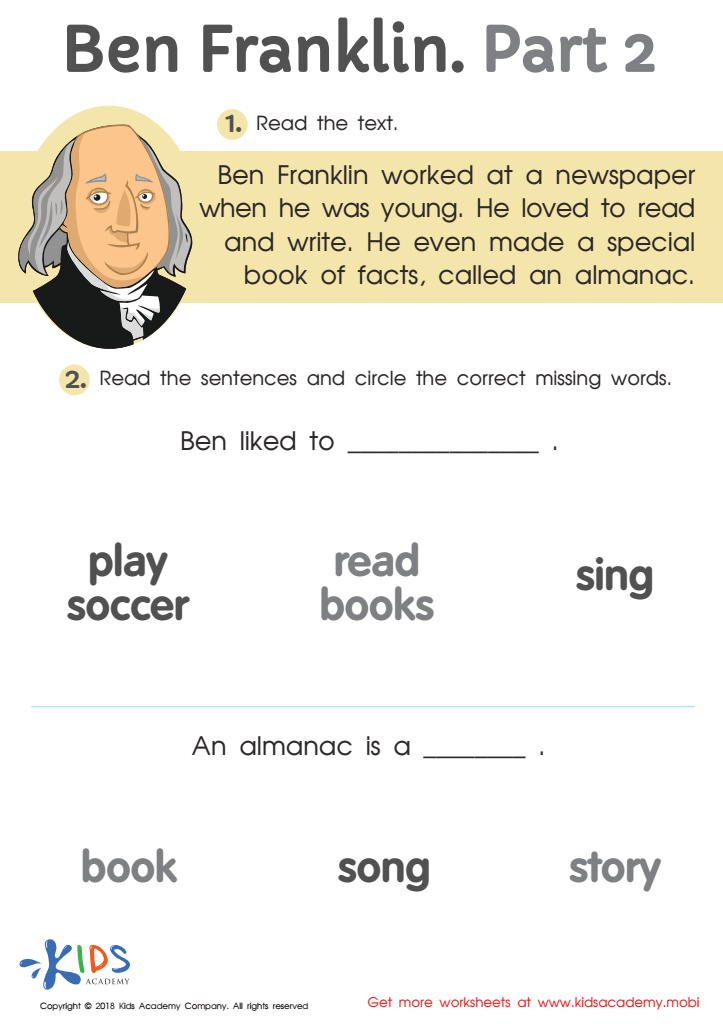

Ben Franklin Part 2 Worksheet
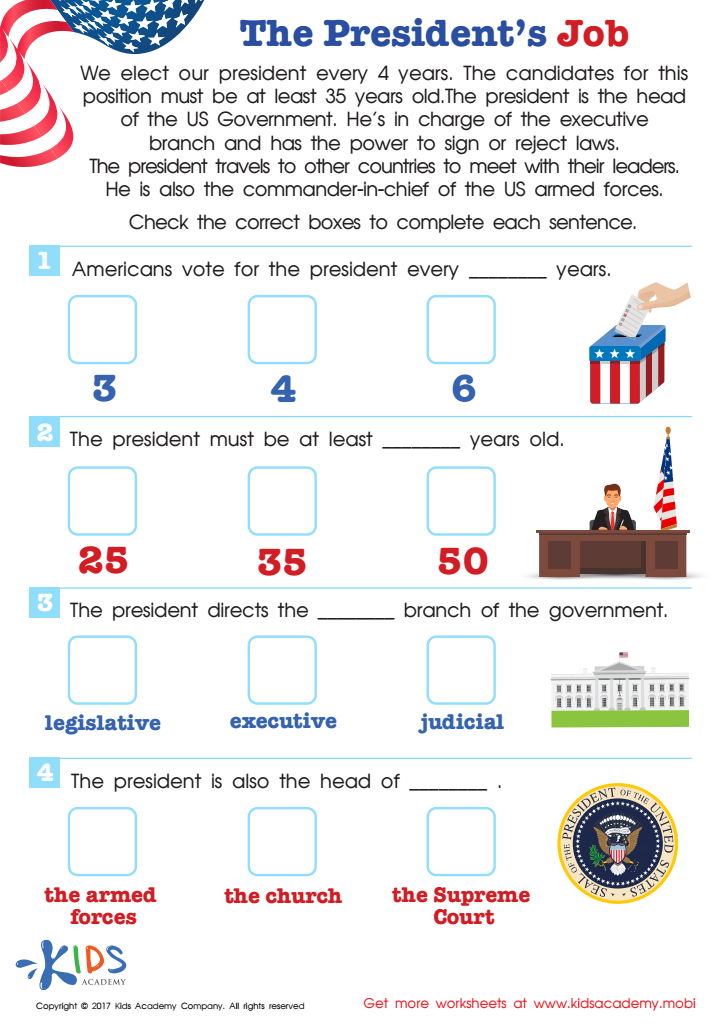

President of the USA Job Description Worksheet
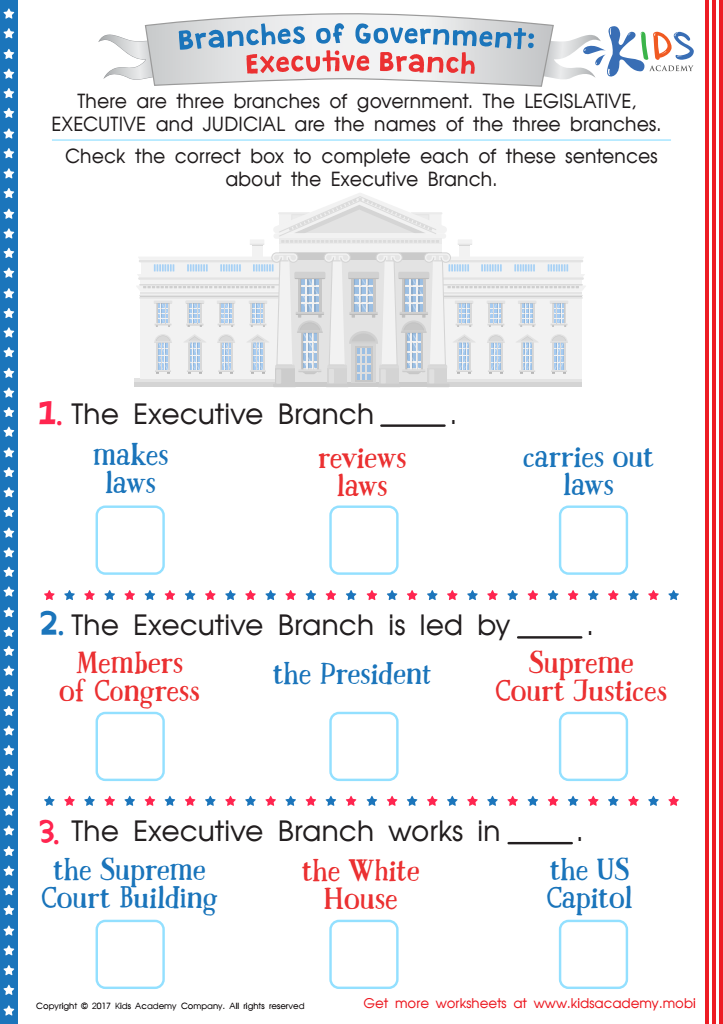

Branches of the Government: Executive Branch Printable
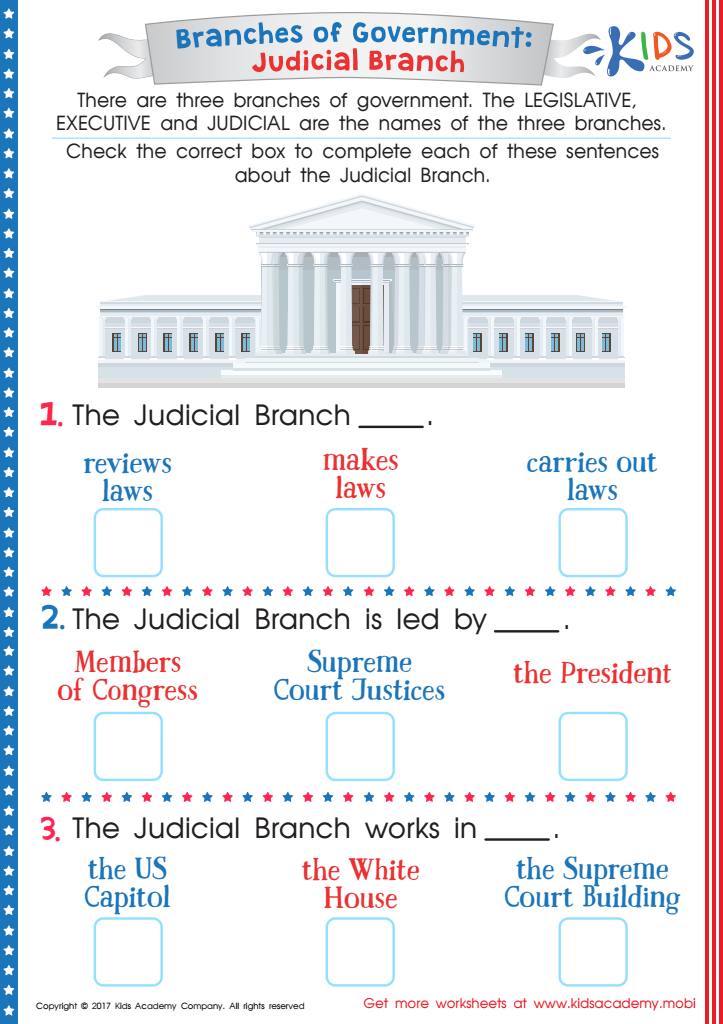

Braches of the Government: Judicial Branch Worksheet
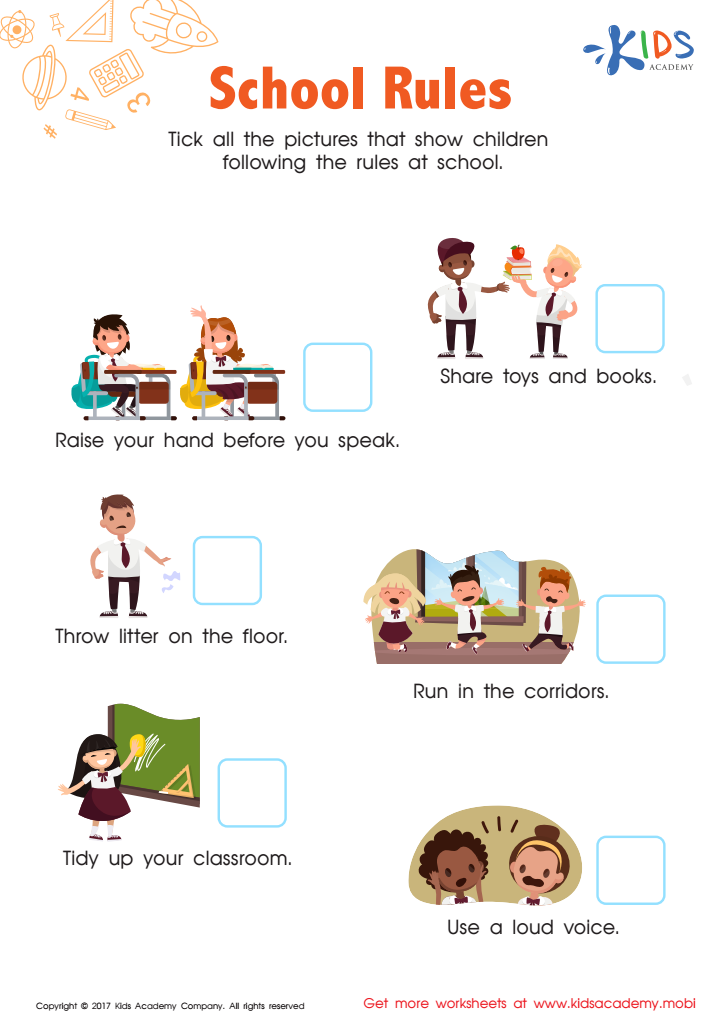

School Rules Worksheet
Parents and teachers should place significant importance on introducing children aged 3-9 to the principles of normal governance and civics because these formative years are crucial for developing foundational beliefs and values. Understanding governance helps children recognize the importance of rules, fairness, and cooperation, which translates into respectful and socially responsible behavior. Early education on civics helps kids appreciate their roles within various communities, fostering a sense of belonging and responsibility.
Teaching these concepts also aids in developing critical thinking skills. When children understand why rules exist and how decisions are made, they become more empathetic and better equipped to consider various perspectives. This promotes more inclusive behavior, reducing instances of bullying and fostering kindness.
Moreover, knowledge of governance encourages active citizenship from a young age. Children begin to understand their rights and responsibilities, laying the groundwork for future participation in democratic processes. This early engagement also promotes awareness of societal issues, imbuing a sense of duty to contribute positively to their communities.
Active involvement from parents and teachers ensures that these lessons are taught in an age-appropriate manner, emphasizing practical and relatable examples. This foundational knowledge supports not only personal development but also the cultivation of informed, engaged future citizens, ultimately benefiting society at large.
 Assign to My Students
Assign to My Students









